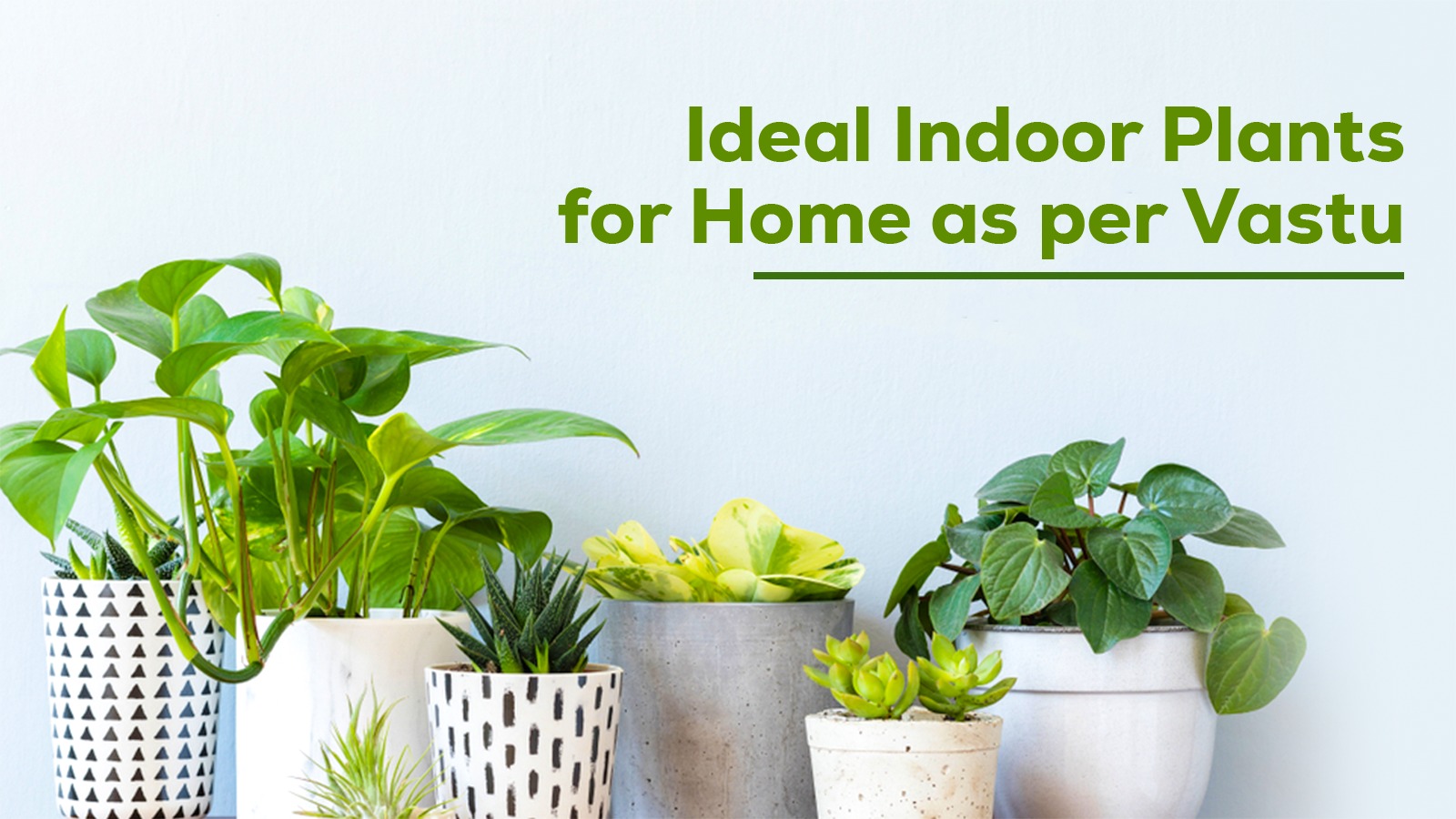In the ancient practice of Vastu Shastra, the arrangement and placement of objects within a living space are believed to influence the flow of energy, ultimately impacting the well-being and prosperity of its inhabitants. Among the various elements that Vastu Shastra considers, plants hold a significant place as they are considered carriers of positive energy and natural blessings. By strategically incorporating specific plants within your home, you can harness their positive energies and create an atmosphere of harmony and abundance.
Let’s explore in more detail the types of plants that are best suited for homes according to Vastu Shastra, and the reasoning behind each selection.
Tulsi (Holy Basil): Tulsi, also known as Holy Basil, is one of the most revered and sacred plants in Indian culture. Vastu Shastra considers Tulsi as a powerful purifier of energies, capable of dispelling negativity from its surroundings. Placing a Tulsi plant in the northern, eastern, or northeastern part of the house is highly recommended, as these directions are associated with positive energies and spiritual growth. Additionally, regular worship and care of the Tulsi plant are believed to bestow health, prosperity, and divine blessings upon the household.
Money Plant (Epipremnum aureum): The Money Plant is renowned for its air-purifying properties and is associated with prosperity and financial growth in Vastu Shastra. The plant’s heart-shaped leaves symbolize love and compassion, making it an ideal addition to the home. According to Vastu principles, the southeast corner of the living room is the best location for the Money Plant, as it is associated with the flow of wealth and abundance. Regularly pruning and nurturing the Money Plant is believed to enhance its positive effects and attract wealth and success.
Lucky Bamboo (Dracaena sanderiana): Lucky Bamboo is a popular choice for both homes and offices due to its elegant appearance and low maintenance. In Vastu Shastra, Lucky Bamboo is considered an emblem of good fortune and prosperity. The number of stalks in a Lucky Bamboo plant holds significance – a plant with three stalks represents happiness, wealth, and longevity, while a plant with five stalks symbolizes good health. Placing the Lucky Bamboo in the east or southeast corner of the home is believed to invite positive energies associated with growth, progress, and success.
Neem (Azadirachta indica): Neem, also known as the Indian Lilac, has been revered for its medicinal properties and purifying abilities for centuries. In Vastu Shastra, having a Neem tree in the garden or near the house is believed to cleanse the environment, ward off evil influences, and protect the household from negative energies. Additionally, the Neem tree is associated with healing and rejuvenation, making it a valuable addition to any home seeking to promote well-being and positive vibrations.
Jasmine (Jasminum sambac): Jasmine, with its enchanting fragrance, is considered an embodiment of love and positivity in various cultures. In Vastu Shastra, Jasmine is associated with romance and emotional connections. Placing a Jasmine plant in the north, east, or northeast direction of the house is believed to attract love and strengthen relationships between family members. The presence of Jasmine is thought to create a harmonious atmosphere, fostering love and understanding among those residing in the home.
Aloe Vera (Aloe barbadensis miller): Aloe Vera is renowned for its numerous health benefits, and in Vastu Shastra, it is believed to bring positive energy and good luck to the household. The presence of Aloe Vera is said to improve physical health and promote overall well-being. Placing the Aloe Vera plant in the northeast direction is considered ideal, as this direction is associated with divine blessings and prosperity. The gel of Aloe Vera is also considered sacred and is used for various spiritual purposes.
Ashoka (Saraca indica): The Ashoka tree holds great significance in Hindu mythology and is associated with growth, optimism, and positivity. Planting an Ashoka tree in the garden or on the left side of the house (when facing the main entrance) is believed to attract positive energies and create a sense of well-being. The presence of the Ashoka tree is thought to foster an atmosphere of optimism and create a calming effect, making it an excellent choice for homes seeking balance and tranquility.
Orchids: Orchids are exquisite flowering plants known for their beauty and elegance. In Vastu Shastra, Orchids symbolize love, fertility, and abundance. Placing Orchids in the bedroom is believed to enhance the romance between couples and create an environment of love and intimacy. Additionally, Orchids are associated with creativity and inspiration, making them a suitable choice for the study or work area.
Areca Palm (Dypsis lutescens): The Areca Palm, with its lush green fronds, is not only aesthetically pleasing but also an effective air purifier. Vastu Shastra recommends placing Areca Palms in the living room or study room to attract positive energies and promote academic success. The presence of the Areca Palm is believed to enhance creativity and create a lively and vibrant atmosphere.
Hibiscus: Hibiscus is a vibrant and colorful flowering plant symbolizing joy, beauty, and abundance. Placing Hibiscus plants in the garden or on the balcony is considered auspicious in Vastu Shastra. The presence of Hibiscus is believed to attract good fortune and prosperity into the household. Moreover, the vibrant blooms of Hibiscus are associated with happiness and positive energy, making it a delightful addition to any home.
Harmonizing Your Home: Vastu-Approved Plants to Avoid
While incorporating auspicious plants can enhance positive energies in your home, Vastu Shastra also advises avoiding certain plants that may attract negative vibrations. Here are some plants best avoided inside the home to maintain a harmonious living environment:
Cactus: The spiky appearance of Cactus is believed to emanate sharp and thorny energies, potentially causing discord and conflict within the household. To foster a positive ambiance, it’s advisable to steer clear of keeping Cactus plants indoors.
Bonsai Plants: Bonsai plants, while aesthetically pleasing, are pruned and shaped to remain small, giving them an unnatural appearance. Vastu considers them as stunted and may hinder the flow of positive energies within the home. Avoid placing bonsai plants indoors to maintain a balanced energy flow.
Milkweed (Euphorbia): Milkweed, also known as Euphorbia, emits a milky, toxic sap, making it inauspicious for indoor settings. Due to its potential harmful effects, it’s recommended to exclude Milkweed from your indoor plant selection.
Dead or Dried Plants: Dead or dried plants signify stagnation and negativity. To uphold a vibrant living environment, refrain from keeping withered plants indoors, as they may hinder the flow of positive energies and create a sense of decay.
Bitter Gourd (Karela) Plant: The Bitter Gourd plant is associated with bitterness and discord according to Vastu Shastra. To maintain harmony among family members, it’s best to avoid keeping the Bitter Gourd plant inside the home.
Thorny Plants: Plants with sharp thorns, such as Rose bushes or Thorny Shrubs, carry aggressive energies that can disrupt the harmony within the household. For a peaceful ambiance, it’s recommended to avoid such plants indoors, especially in high-traffic areas.
Bamboo Plant with Red Stalks: While Lucky Bamboo (Dracaena sanderiana) is considered auspicious, Bamboo plants with red stalks are believed to harbor negative energies. To maintain positive vibrations, refrain from keeping Bamboo with red stalks inside the home.
Tamarind (Imli) Tree: The Tamarind tree is believed to have an adverse impact on the residents, potentially leading to conflicts and obstacles. As per Vastu Shastra, it’s best to avoid planting Tamarind trees within the premises.
By being selective with the plants you include in your home, you can ensure a living space aligned with the principles of Vastu Shastra, fostering positive energies and harmony among its occupants.
The Wrapping Words
In conclusion, incorporating these Vastu Shastra-approved plants into your home can create a harmonious and uplifting living space. However, it is essential to remember that the key to harnessing their positive energies lies not only in selecting the right plants but also in nurturing and caring for them with love and attention. A well-maintained and thriving garden can significantly amplify the positive vibrations and blessings these plants bring, contributing to the overall well-being and prosperity of your home.
Contact My Real Estate and let our expert advisor guide you towards the perfect home, where positive energies thrive, and dreams come to life. Your journey to a harmonious and prosperous living experience awaits!













